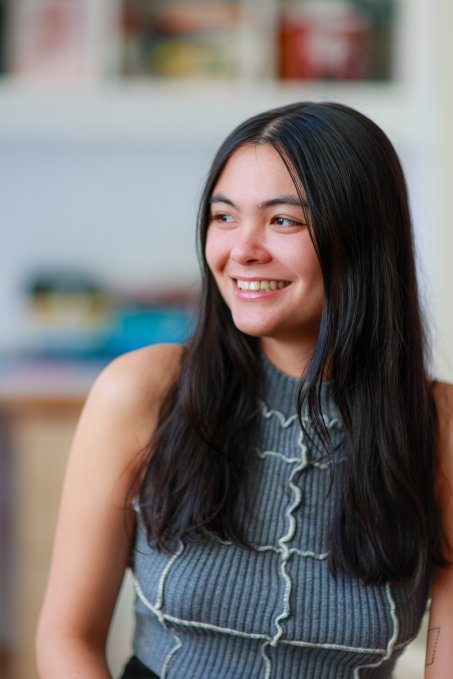Description
In Life There Are Many Things is a portrait of adolescent mental illness after the end of history: “I have / this body— / residue—and I don’t know what / left it.” This chapbook’s unmoored speakers seek, alternately, to root themselves more firmly in the world and to exit it entirely. Autobiography and allegory merge to track the inexplicable shapeshifting of the self as it ages, heals, dies, and lives again.
FROM In Life There Are Many Things
NEIGHBORHOOD
The sky is blue again and all the knees around me
bend. I look. A big red cut shaped like a fingernail,
a mouth starting to open. Litter on the sidewalks
glittering like candy. A big red mouth bleeding
cherry candy, dull gray smoke. Grown-up arms
wrap around me and grown-up legs start running
all in the same direction: away. We go all the way up
to the streets with the numbers on them. We move
all the way up to the streets with the numbers
on them. Then we move again, and again, and I get lice
so we cut off my hair and soak it in oil. Ugly gray
crayon I drag off the edge of the paper to show
the smoke, only that’s not really what it looked like.
I learn that Daddy didn’t wake up until the second
plane hit. He went into the living room and there weren’t
any windows, just different kinds of dust. He gives me
so much candy my mouth goes dull as a knife.
I get so hungry I have to eat until it hurts. I eat slabs
of dead things and look for the raw part, the softest
pink, my favorite color, but then I start dressing
like a boy. This is the kind of thing teachers call
a story: Daddy didn’t wake up until the second plane hit.
But he never wakes up when the sun is out, anyway.
He stays awake all night at his machine, its dull gray
glow. At night he cooks me dead things, cooks away
all the pink. When we finally get to move back home,
there are windows. The furniture is all blood orange
and cherry red. Across the street, instead of two big
buildings, there is one big hole, which they are covering
with metal, which is stupid. Sometimes I like it here.
How nobody knows where I live. I am a very small thing
and I am so good at slipping past fat pale crowds of people
with cameras. I am hard to surprise and easy to fool
because I know that so many things are normal.
My hair is long like a girl’s and my clothes are ugly
like a boy’s, so my body is just right. I can’t help it,
I have to pick the stupid scabs until they bleed cherry
candy, salty caramel. I sleep through the sun
and its dull gray glow, and my alarm goes off
but I don’t wake up. I can’t help it, I hate going
to the playground—I don’t know how to move my arms.
I don’t know how to move my legs, my open mouth.


 © Ian Jacobs
© Ian Jacobs 

